April 6, 2021
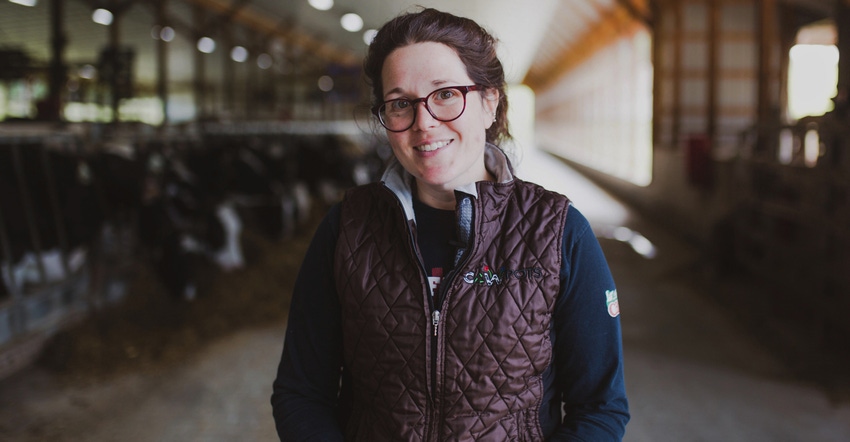
It is not uncommon for dairy farmers to diversify their operations or explore ways to create new revenue streams.
Some farmers make cheese or ice cream, bottle milk or bag composted manure on their farms. Others offer farm tours or add an additional livestock enterprise to the mix.
But the two eastern U.S. dairy farmers who presented an educational workshop on direct marketing at the recent Professional Dairy Producers of Wisconsin Business Conference found other ways to diversify their operations. And when they started their alternative enterprises, they jumped in with both feet.
Multiple uses for manure
The Freund family, from East Canaan, Conn., was one of the first dairy farm families in the country to build a manure digester on their farm. They not only capture biogas from the manure produced by their cows, but they also turn the manure solids into biodegradable plant pots they call CowPots.
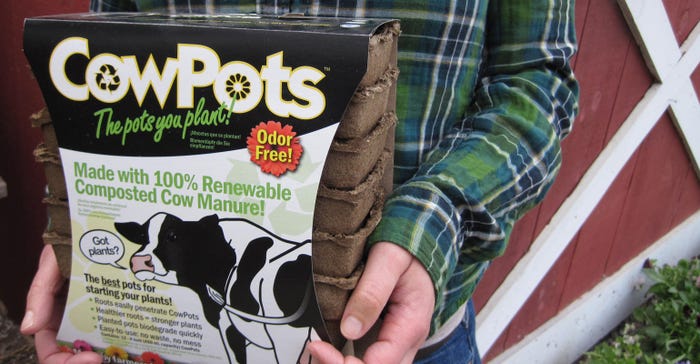 COMPOSTED MANURE: The CowPots produced on the Freund farm are made from 100% composted cow manure.
COMPOSTED MANURE: The CowPots produced on the Freund farm are made from 100% composted cow manure.

Amanda Freund, a third-generation farmer at Freund’s Farm, Inc., told PDPW Business Conference participants that her father, Matthew Freund, saw an opportunity to do something creative and began experimenting with making plant pots out of composted manure in the late 1990s.
“Initially [the CowPot] was designed as a better way for us to handle our manure and to use in our tomato greenhouse, not as a revenue stream,” Freund says. “It kind of evolved slowly – we didn’t really know if it would take off. When you put this pot in the ground, you’re adding value to the soil.”
The CowPots allow for unrestricted root penetration and help reduce transplant shock. As the pots decompose, the manure they are made from enriches the soil.
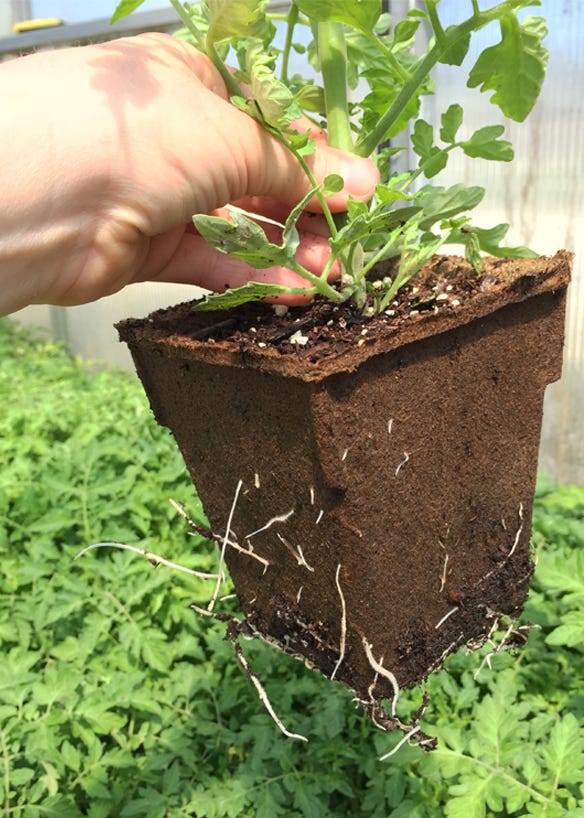
ENVIRONMENTALLY FRIENDLY: Plant roots make their way through the biodegradable CowPots. They are a good way to get plants started in a home or greenhouse.

The CowPot marketing effort was kicked up a notch in 2007 when Mike Rowe featured the products on his television show “Dirty Jobs.”
“That was what basically put us on the map,” Freund says.
As they gained market growth and product awareness, they moved their operation out of a farm shop and into a stand-alone facility on the farm. The new facility features automation and two industrial-sized ovens.
Freund says their marketing efforts have evolved a great deal over the years.
“As dairy farmers, we never had to be responsible for marketing our end product,” she says. “The milk truck shows up every day and leaves with our milk — that was as much involvement as we had with marketing our end product. So, building a brand has been a huge learning curve. That has been the most complicated and challenging part of this whole initiative.”
For those interested in direct marketing a product from their farm, Freund suggests seeking out state and federal grants to help kickstart the effort.
“You have to be persistent,” she says. “Don’t let being declined a couple times hold you back from what you’re trying to pursue.”
The Freunds recently celebrated five years in their modernized free-stall barn that includes five robotic milkers.
Manure from the free-stall barn is transferred to the digester, where the liquids are separated and transported via dragline to their farm fields. The solids are composted and used for the cows’ bedding as well as to manufacture the CowPots.
Plethora of pumpkins
Walt Gladstone, owner of Newmont Farm in Bradford, Vt., started dairy farming with his wife, Margaret, in 1988. They have been joined in their operation by two of their sons, Will and Matt.
Over the years the Gladstone family expanded from 120 cows to 400 and recently to 1,600 cows. They developed a wholesale pumpkin business on the side that has somewhat taken on a life of its own.
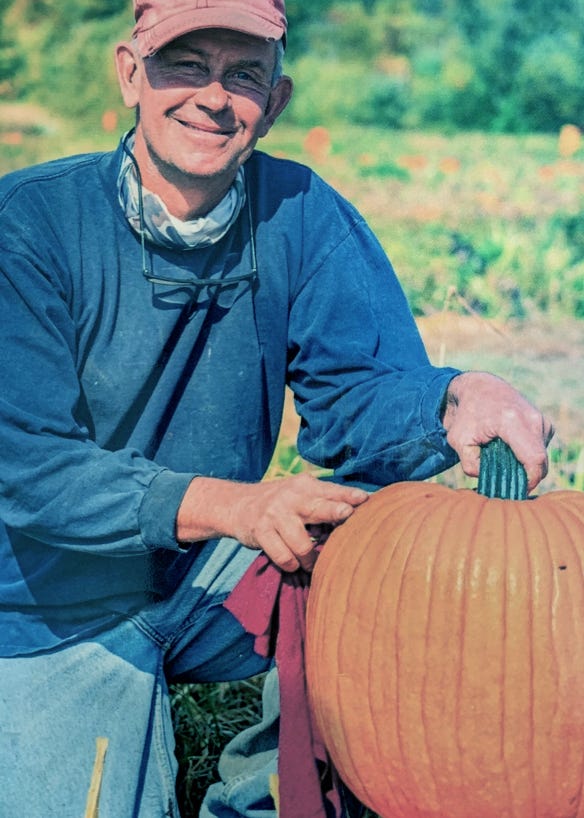
WHOLESALE PUMPKIN BUSINESS: Walt Gladstone plants about 200 acres of jack-o’-lantern pumpkins each year on his family’s dairy farm.

They plant about 200 acres of jack-o’-lantern pumpkins each year, primarily for ornamental and decorative use. They sell the pumpkins at farm stands and through large supermarkets and big box stores.
Their plantings yield 150 to 170 semi-trailer loads of pumpkins each year.
The Gladstones maintain a close relationship with other pumpkin growers who might come up short late in the season and work hard to maintain a diverse market makeup.
“Quality is critical in all of the markets we sell into,” Gladstone told the PDPW audience. “Our reputation has helped us gain market share. We want to continue to increase our market share but not to the point where we grow so fast, we can’t maintain our quality.”
While his sons manage their 1,600-cow dairy, Walt is in the field with the pumpkins for 60 days each fall.
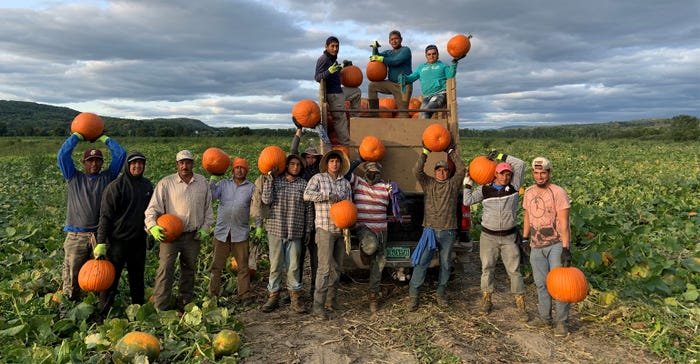 GROUP EFFORT: When it is pumpkin time at Newmont Farm, it is all-hands-on-deck for harvesting and marketing.
GROUP EFFORT: When it is pumpkin time at Newmont Farm, it is all-hands-on-deck for harvesting and marketing.

“We’re hands-on – when you get too far removed from it, you can get in trouble,” he says. “When the pumpkin season arrives, that’s my baby. I’m in charge of the planting, spraying and marketing. I never take next year for granted, but we have had a real good roll.”
Walk before you run
Gladstone’s advice to dairy farmers who might want to try an alternative enterprise is to make sure the dairy farm is running smoothly before taking on something else.
“You want to make sure the dairy farm is in good shape so when you’re away it will have enough management to take care of itself,” he says. “Really try to do your homework on what you’re selling and try to be as good at it as you can be.
“And don’t be afraid that you’ll make mistakes. You have to take ownership of (the enterprise) and try to gain the trust of the people you are selling to.”
Massey lives near Barneveld, Wis.
You May Also Like




